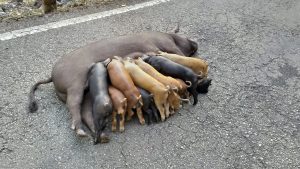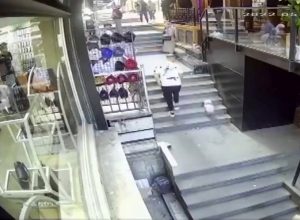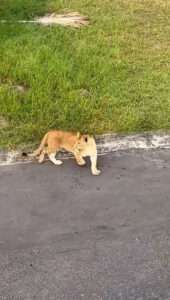Story By: Alex Cope, Sub Editor: Joseph Golder, Agency: Central European News
This “disturbing” undercover footage shows live turtles and frogs being sold in a wildlife market in Singapore’s Chinatown similar to the one in Wuhan where coronavirus started.
The footage was taken on 14th March by animal welfare group ACRES and has now been published with warnings that vendors were seen handling the animals and then exchanging money with the same gloves.
In the clip, a vendor selling soft-shelled turtles (Amyda cartilaginea) from Indonesia says the specimens were “wild,” which have not been “bred”.
ACRES reports that in 2018 Singapore imported 17,830 Asiatic soft-shelled turtles from Indonesia, representing 70 percent of Indonesia’s export quota for the year.
ACRES say there is a risk of disease transmission from the turtles which are being sold for food.
The vendor goes on to say that not all of the animals in the market have been fed as slaughtering them after they have eaten makes more mess and smells bad.
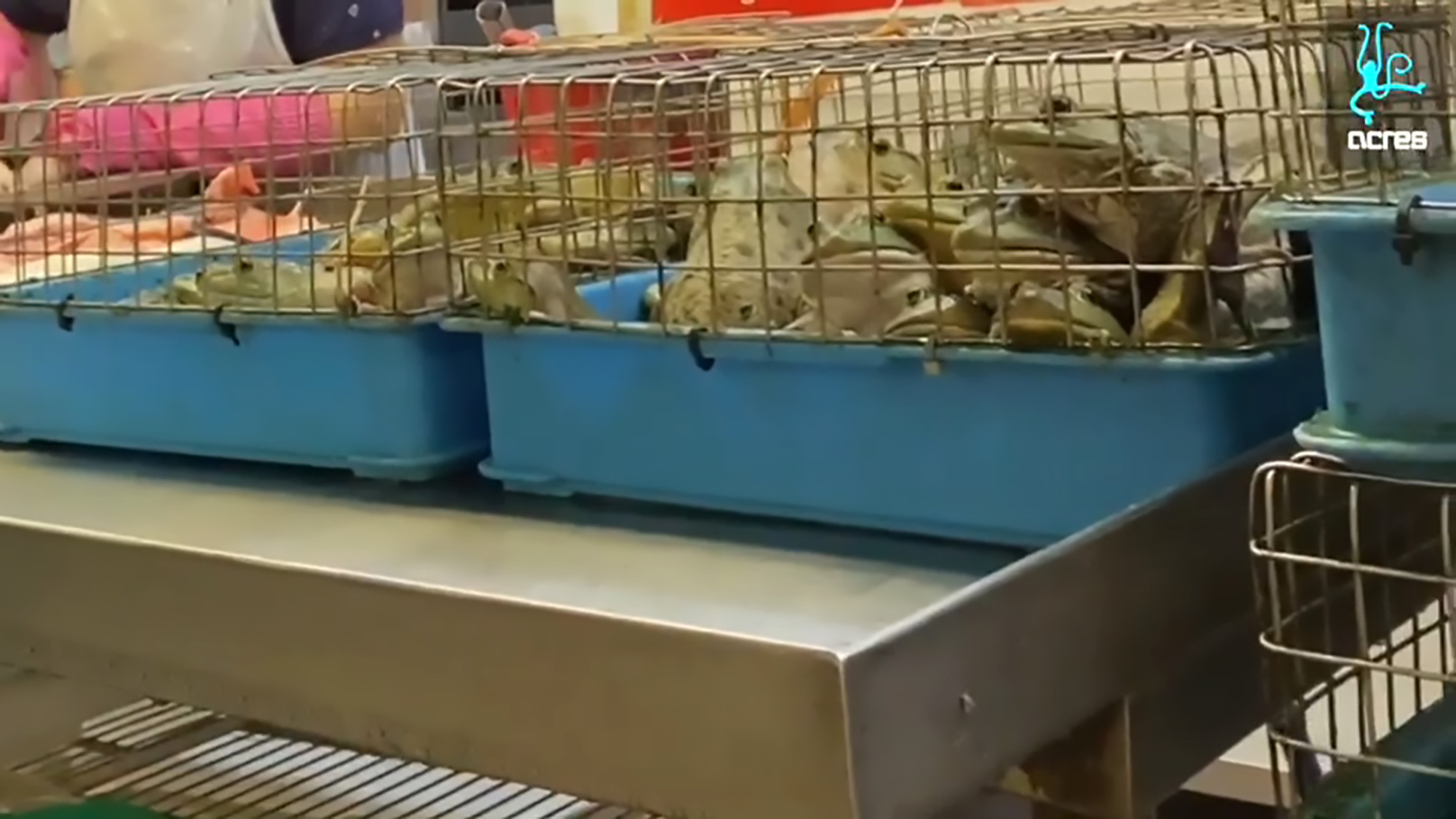
The footage shows the turtles are kept in their own faeces, next to other animals in the market such as bullfrogs.
The vendors reportedly handle and slaughter the animals in the same place as they exchange the goods and cash with customers, increasing the risk of disease transmission.
Anbarasi Boopal, the Deputy Chief Executive at ACRES, told local media that she had seen vendors handling live bullfrogs and other seafood also using the same gloves to handle cash transactions with customers.
She added: “This would be a risk to customers who might then exchange this cash with vegetable vendors or cooked food vendors, who are exposed to similar health risks despite not coming into direct contact with live animals or slaughtered meat.”
The footage shows the turtles were seen with open wounds on their noses reportedly caused from constantly rubbing against the netted bags they are kept in. The wounds can easily become infected, they say.
Boopal said that starving the animals represents a risk to public health as starved animals have a suppressed immune system, allowing them to easily contract diseases and pass these diseases to other animals.
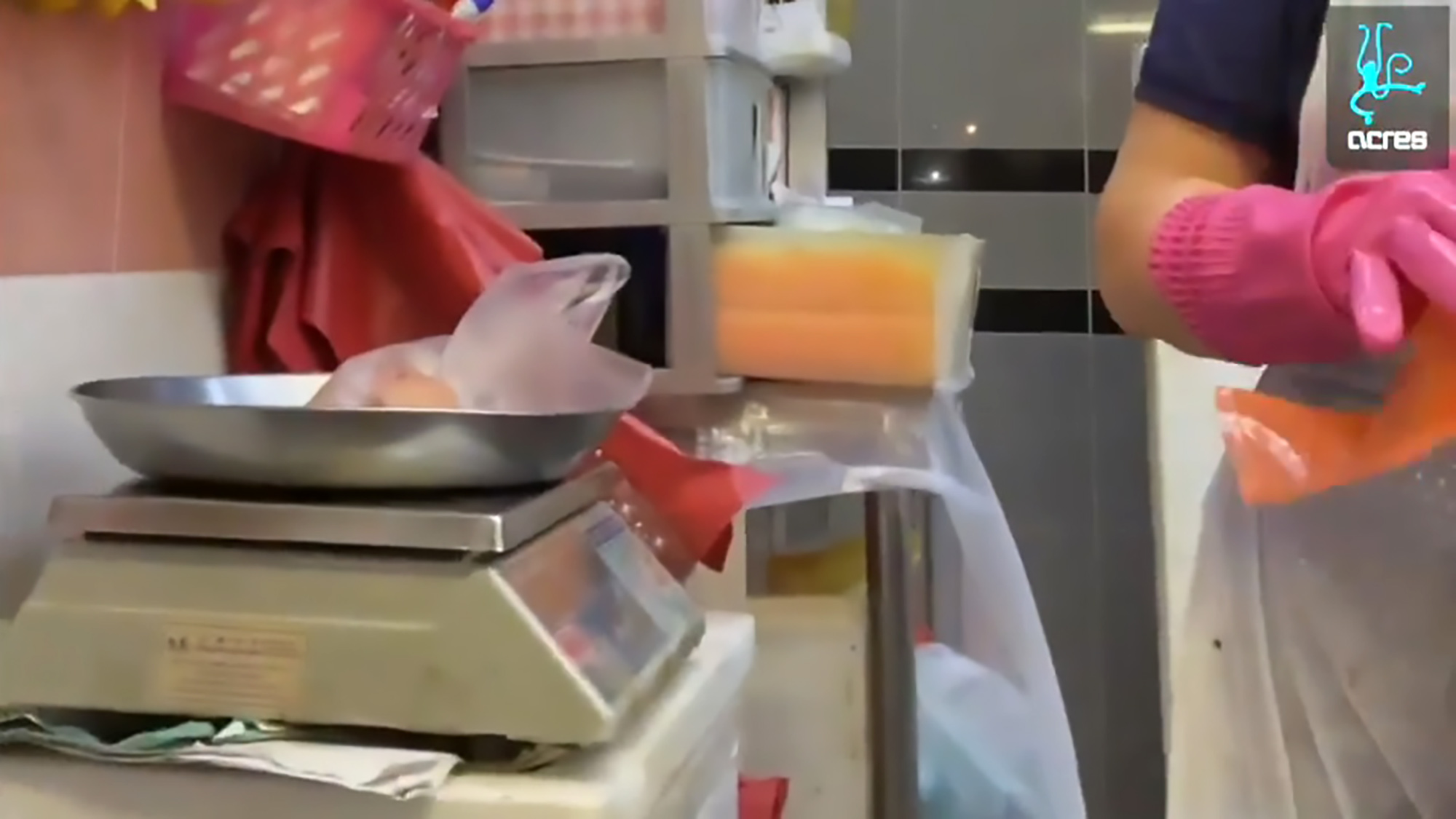
Jaipal Gill, Executive Director at the Society for the Prevention of Cruelty to Animals (SPCA), said “the findings were disturbing, especially in view of the current global health crisis”.
ACRES and SPCA appealed to the Singapore Food Agency (SFA) to restrict all killing of animals to slaughterhouses and end the sale of live animals in wet markets.
The SFA reportedly told local media outlet ‘Mothership’ that the slaughter of live turtles, frogs or eels is only allowed when vendors comply with the country’s regulations laid out in the Environmental Public Health Act.
Thet said any vendors infringing on the requirement would have action taken against them. The SFA said they had “not detected any infringements”.
The SFA added: “To prevent foodborne illnesses, both market stall vendors and patrons should observe good food safety and hygiene practices, e.g. washing hands with soap and water before and after handling raw meat, thorough cooking which helps to kill harmful bacteria in food.”

